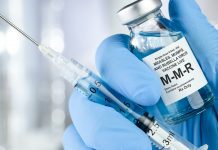
Researchers from King’s College London and the Institute of Cancer Research have identified immune cell types that could be used to develop a new treatment for breast cancer.
The research team carried out a detailed analysis of the different immune markers within tumour tissues and blood samples. These samples were taken from patients who failed to respond to pre-surgery chemotherapy treatment for breast cancer. The researchers are now looking to use their findings to develop specific immunotherapies for chemotherapy-resistant breast cancers.
The findings, which have been published in the Journal Clinical Cancer Research, provide insight into the function of immune cells in patients with chemotherapy-resistant breast cancers.
Treating chemotherapy-resistant cancers
Chemotherapy cannot kill cancer cells in high risk-patients, but immunotherapy, which helps the immune system attack cancer cells can provide significant benefits as a treatment for breast cancer.
The researchers used multiple novel technologies to investigate the environment that surrounds chemotherapy-resistant tumours. The team analysed proteins and genes in both pre-treatment and post-treatment cancer tissue. They measured how 1,300 cancer and immune-related genes with cancer tissue were affected by chemotherapy.
The researchers discovered that chemotherapy-resistant cancer cells had few immune cells around them, but chemotherapy did induce some changes in several immune cell types. An increased number of “innate” cells such as neutrophils and natural killer (NK) cells were affected by the treatment. However, the NK cells lacked the potency to effectively kill cancer.
It was also observed by the researchers that the immune-related genes associated with NK cells were also associated with cell inhibition or exhaustion, meaning that NK cells are unable to fight cancer. These findings could be used to develop specific immunotherapies for high-risk patients
“Chemotherapy resistance in aggressive early cancers is a major reason why cancer regrows after treatment for breast cancer, contributing significantly to people not surviving their disease. In order to find the right targets for drug developments, it’s important to have a deep understanding of the complex mechanisms that allow some cancer cells to resist treatment, then hide from our immune system to only re-emerge later when they’re harder to eradicate,” said Lead author Dr Sheeba Irshad, Cancer Research UK Clinician Scientist at King’s College London.
A new treatment for breast cancer could be possible with more research
The researchers say they have identified several cell types that could be worth investigating. With the use of clinical trials and more research, it is possible that a new treatment for breast cancer could be created.
“Great strides have been made in harnessing immunotherapies to treat several types of cancer, but we need to do better to realise their potential for patients with breast cancer, said Professor Andrew Tutt, Director of the Breast Cancer Now Toby Robins Research Centre at The Institute of Cancer Research, London, and of the Breast Cancer Now Research Unit at King’s College London.
“This exciting work advances our understanding of the interaction between cancer cells and the immune system during treatment, and why existing treatments work well for some patients, but not others. I hope this research will help us to enhance the anti-cancer immune response in breast cancer, particularly for patients whose cancer has not responded well to chemotherapy,” he added.






















